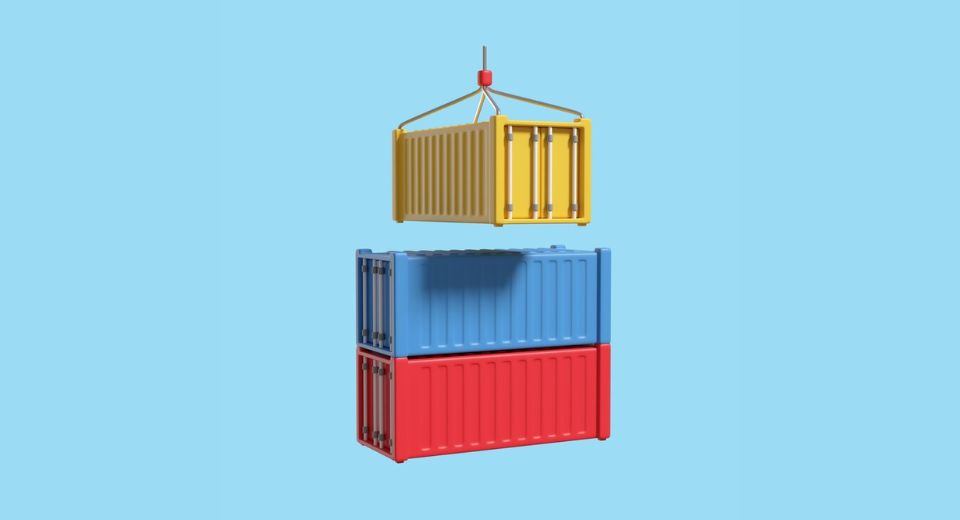
Oct 14, 2024

Indeed, of late, the German modular containers market has gained considerable attention; such findings are mentioned in the research study done by Metastat Insight-a provider of quality market intelligence. Modular container utilization is experiencing high usage in all types of sectors operating in Germany, from construction to logistics and much more. Demand is on the increase, therefore, considering the flexibility and versatility of modular container solutions-essentially solutions which have been proved in places to offer practical alternatives for traditional construction methods. Industries will continue to innovate and improve their operational processes through such innovative ways of offering solutions to meet varied sectors in Germany at affordable, flexible, and efficient approaches.
The growth of the Germany modular container market is directly tied to the growth in interest for sustainable and eco-friendly practices in construction. Reducing waste, conserving resources, while simultaneously having a functional and qualitative product was an inducement that the industries should meet environmental goals without a discount on functionality or quality. The time in construction is reduced; there is a reduction in the carbon footprint of building. In this direction, Germany is reflective of a commitment toward greater sustainable practices, and modular containers play a great role in this transformation.
There is good versatility in modular containers. Its applications range into many fields. These can be altered according to specific requirements while used as a temporary abode, office, or even as shopkeepers. In such an uncertain and dynamic economic environment, these features of the container modules can prove to be highly beneficial for industries functioning in a dynamic structure with changing priorities all the time. For example, construction industries used module containers as site offices and worker accommodations while there is evidence that retail industries have used these modules as pop-up stores or temporary stores. Modular containers, for example, have proven to be one efficient means of maximizing usage of available space and resources in logistics and storage.
Other reasons that put the Germany modular container market at a forefront of meeting the rising demand for affordable housing include housing shortages that are rapidly becoming a reality in most urban centers. Modular containers have been positioned as an excellent alternative because they can be deployed readily and efficiently. These containers are stackable and can be arranged in any form needed so that multi-unit housing complexes can be built in a matter of weeks, rather than years needed for the development of conventional structures. They present an attractive option for public and private developers looking to address the challenges of housing.
The modular containers are also seen to be of interest by the industrial sector of Germany, particularly because of their ease in transportation and installation. The ease of transferring containers from one place to another site gives companies the elbow space to respond promptly and suitably according to changing market conditions, especially for manufacturing-related industries, which might require temporary storage or workspace solutions to be put in place at short notice. Modular containers represent a ready-to-go solution that can quickly be set up on the site without the need for significant site preparation or construction.
In addition, aesthetics in modern modular containers have greatly improved in the recent past. The aesthetic containers can now be conceived for architectural flair and are thus an aesthetic solution for businesses and developers who want to create visually appealing spaces. Several possibilities have opened up in urban planning and commercial projects through the design of the external and internal areas of modular containers.
The policies of the German government on innovation and sustainability further energized the market growth of modular containers. Incentives and policies on sustainable building materials and methods have made modern modular containers a more viable option for public infrastructural projects, having been adopted in education, health, and emergency response sectors, where modular containers are noted for classrooms, medical facilities, and temporary shelters.
Given this onus placed on flexible yet efficient building solutions, the Germany modular container market will continue to showcase appreciable growth. Modular construction technology is continually being enhanced; specifically, its efficiency and adaptability are being constantly amended. This would, therefore, continue to help foster demand in the medium to long term. Therefore, their ability to scale up or scale down quickly according to market conditions would be a big plus for businesses from all over Germany, making modular containers a treasured commodity in an increasingly competitive economic climate.
Such growth is expected in German modular container markets, says Metastat Insight. Modular containers are the way to the future building, logistics, and housing in Germany, given their flexibility, sustainability, and cost-effectiveness. Modular containers end up being the pragmatic solution amidst the growing demands of a fast-changing world as industries and government bodies focus on efficiency and environmental responsibility.
Drop us an email at:
Call us on:
+1 214 613 5758
+91 73850 57479